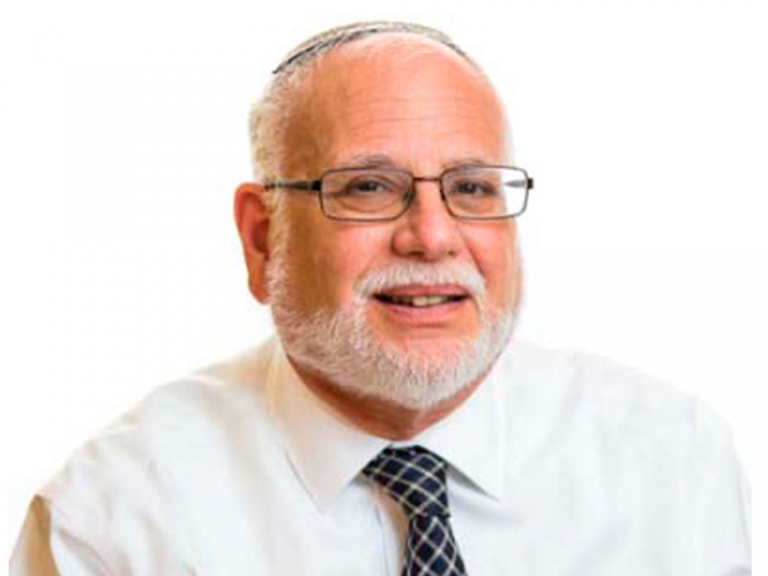D'var Torah by Dr. Kalman Stein, Interim Head of School

Dear Hebrew Academy Community:
Many years ago I had the honor and privilege of spending two hours every Wednesday afternoon studying Humash with Prof. Nechama Leibowitz, an extraordinary scholar who revolutionized the study of Humash in the second half of the last century. When we studied Parashat Vayera she told the following story:
Back in the 1920’s there lived a man on a remote moshav in Israel. He loved classical music but because the electric grid had not yet been extended to his area he could not listen to broadcasts of the Tel Aviv Symphony Orchestra. When the electric grid finally reached his home he managed to acquire a radio and to have it trucked—radios back than were big and bulky—to him. During the entire day before the scheduled symphony performance he played with and moved the radio to get the best reception and the best acoustics. Finally, he sits down in his armchair just as the symphony is to begin, hears the first notes of the overture, and there’s a knock on the door. He reluctantly opens the door to his recently widowed neighbor who needs to borrow a cup of sugar to bake a cake. By the time he gets back to the chair the overture is complete and the first movement is about to begin. Another knock on the door: “I don’t know what’s wrong with me these days. I need some flour as well.” He finally ushers her out, sits down to enjoy as much of the performance as he can, and—as you’ve guessed—another knock on the door: “The truth is I don’t want to bake a cake. I’ve been so lonely since my husband died. I just need someone to talk to.” With a sigh and a slight shrug of the shoulders our music lover shuts the radio and sits to chat with his neighbor.
That, said Prof. Leibowitz, is the story of the beginning of this week’s Parasha. Avraham, according to the Midrash, is not well. He is recovering from his circumcision and in some distress and God, HaKadosh Baruch Hu Himself, comes to visit. Just picture the scene. Avraham is sitting on his couch and God comes in to visit. He sits down with Avraham and envelopes him in His presence. Avraham who had discovered the truth of God and brought monotheism to the world is about to experience a level of spirituality that no human had ever experienced. Suddenly Avraham looks up and sees these three guys approaching the tent. He gets up, tells God, “Just give me a minute” and limps off to welcome the strangers. He gives them some water to wash up and rushes back into God’s presence. He sits down and there’s a knock on the tent door—tent doors had knockers in those days-- “We are hungry.” “God, just one more minute please.” And he rushes off to arrange for some bread to be baked and given to the guests. Back to God. Just think of the questions he would have wanted answered; the theological questions that defy human understanding. “Mr. Avraham, we’ve been traveling for days without food. Thanks for the bread but perhaps you have something else in the fridge.” Avraham stands up. He sighs and shrugs his shoulders. “Sorry, God, you came at a bad time. I need to feed these folks. Perhaps another time.”
I usually don’t presume to think like God but I’m pretty sure that if I were God and I had gone to the trouble of paying a personal visit and had been told that three mortals, three seemingly unimportant nomads, took precedence over me, I’d be pretty annoyed, probably rather angry. How does God react to Avraham’s behavior? In the very next Pasuk God, through one of the angels, informs Avraham that he’s about to have a son, that he’s about to become Avraham Avinu, the Patriarch of Am Yisrael. Wow! What’s happened? Avraham had just modeled two quintessentially Jewish actions that made him worthy of being the progenitor of the Jewish People. By rushing to do a Mitzvah rather than choosing to bask in the spirituality of the Divine Presence Avraham demonstrated his understanding that Judaism requires us to achieve spirituality through Mitzvot rather than to seek abstract spirituality. And the Mitzvah he chose to do was one of Chessed which is to be the hallmark of the Jewish People—as Rambam put it: The seed of Avraham are Rachmanim Bnai Rachmanim, a chain of kind and merciful people stretching all the way back to the beginning of our national existence.
Dr. Kalman Stein
Interim Head of School

